June 2018 2nd Edition
June 2018 2nd Edition Joy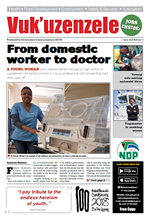
Translations
Plans to make history compulsory
Plans to make history compulsory JoyUniversities can play their part by partnering with the department to make history compulsive.
 The South African Basic Education Department is outlining its plans to make history compulsory at school which will be a gift to future generations.
The South African Basic Education Department is outlining its plans to make history compulsory at school which will be a gift to future generations.
“We are against the rewriting of history for the sole purpose of achieving short-term political expediency. All we are doing is to reclaim our history as Africans. Historians rightly conclude that from a legacy perspective we tell our stories for ourselves and as a gift to future generations,” said Basic Education Minister Angie Motshekga.
The Minister was speaking during a hand over of a report by the Ministerial Task Team (MTT) established in 2015 to conduct a comparative international study on how best to implement the introduction of history as a compulsory subject in Further Education and Training (FET) schools.
The report paved the way on how the South African Basic Education System can make history a compulsory subject which will be phased in from 2023 in Grade 10 to 2025 in Grade 12.
The MTT was led by its chairperson Professor Sifiso Ndlovu.
The task team was given a mandate to advise on the following:
- The feasibility of making history compulsory in FET schools
- Where History should be located in the curriculum
- Review the content and teaching of the history curriculum to in the curriculum.
- Investigate the implications of making history a compulsory subject.
Ndlovu noted that teaching and training should not be the sole responsibility of the the Department of Basic Education but should be carried out in partnerships with universities.
“We call on all heads of archaeology, history and the Department of Basic Education to start the ball rolling. It is up to the Minister to reject or accept the recommendation. If she accepts it we can start developing guidelines,”
Professor Ndlovu said.
SAnews.gov.za
Budler does SA proud
Budler does SA proud vuyelwanSport, Arts & Culture
The Hexecutioner becomes first African boxer to simultaneously win three world titles.
Junior flyweight boxer Hekkie Budler made history when he became the first African to simultaneously win three prestigious world boxing titles in Tokyo, Japan. Budler, dubbed “The Hexecutioner”, beat Japanese favourite and World Super Champion Ryoichi Taguchi at a packed Ota City General Gymnasium in the Japanese capital. His win saw him take Taguchi’s IBF and WBA flyweight titles, as well as the Ring Magazine belt.
Budler is the first South African to win three title belts simultaneously and the first South African to win the Ring Magazine belt under the current South African Boxing Act of 2001. The last South African to bring this title home was Vic Toweel in 1950. 
His win came after a serendipitous turn of events.
Budler, 30, had fought Milan Melindo of the Phillipines for the IBF flyweight belt in Melindo’s hometown, Cebu City, in September. Budler lost by a split decision, but the IBF later ordered a title rematch after it conceded to several incidents of bad officiating against Budler.
In December, Melindo fought Taguchi in Japan in a unification fight approved by the IBF. Melindo lost, and Taguchi inherited the rematch owed to Budler. This put Taguchi’s two flyweight world titles on the line, and a third title when Ring Magazine pronounced its own belt would be up for grabs.
Boxing South Africa congratulated Budler and his team “for this unparalleled accomplishment”.
“What Hekkie has achieved goes way beyond what ordinary words can describe. This is not only victory for Hekkie, but victory for the entire boxing movement of South Africa and the continent of Africa,” the association said in a statement.
Sport and Recreation Minister Thokozile Xasa congratulated Budler in her Budget Vote calling him one of the “living legends of our people, they are our role models”.
Cheers to China, says SA winemaker
Cheers to China, says SA winemaker LondekileOne of the country’s oldest agricultural empowerment projects has won a massive export contract.
South African wine company has secured a one-year contract to export its range of premium wines to China.
Western Cape-based Thandi Wines sealed the deal on the margins of the 19th SIAL China International Trade Fair for Food which was recently held in Shanghai under the theme “Inspire Food Business”.
The trade fair is regarded as a leading platform for international producers and manufacturers of food products, wines, spirits and food service equipment to showcase their goods and initiate contacts.
Twenty-three South African agro-processing companies proudly shared with the world their products and services all thanks to the Department of Trade and Industry (dti).
They were able to directly compete for a share of China’s lucrative food and beverage market, which is valued at an estimated one trillion Euros.
Over 3 400 exhibitors from Asia, the Americas, Europe and Africa were present.
Vernon Henn, the managing director of Thandi Wines, said that the contract is valued at over R700 000. The first shipment of wine will consist of around 26 000 bottles and a second shipment of similar size will follow later.
“Thereafter, the contract will be renewed on an annual basis,” said Henn.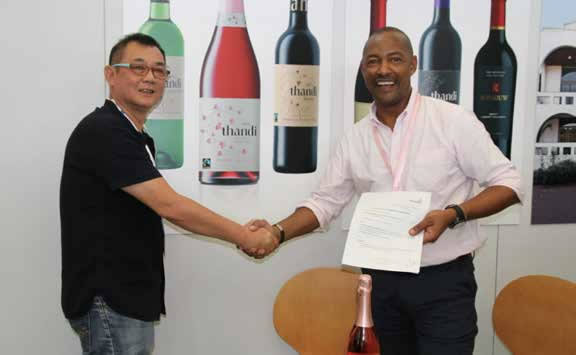
He said their main export destination is Europe which accounts for more than 85 percent of their sales.
“Recently, we started experiencing saturation in Europe and a stagnation in growth. This compelled us to repackage our marketing strategy and explore other markets, in this instance the Asian market,” Henn explained.
He said the decision to explore other markets has presented Thandi Wines with some welcomed rewards more especially because the Asian market is growing.
“The main ingredient required is timing and the dti nailed it… The timing is impeccable because people are already looking to make purchases in preparation for the Chinese New Year at the end of February,” he said.
Thandi Wines was established in 1995 as South Africa’s first agricultural Black Economic Empowerment project. It is owned by 250 farm worker families who hold about 62 percent shares in the company.
The families are involved in almost all the stages of its wine-making processes from working in the vineyards to managing the farm and marketing the wines.
Community involvement in health care produces brilliance
Community involvement in health care produces brilliance JoyThe staff at Maphophoma clinic in Nongoma in KwaZulu-Natal are an example of how the community and public servant can work together to create excellence.
Maphophoma clinic received first place in the Ideal Clinic Realisation and Maintenance category during the KwaZulu-Natal Health MEC Sibongiseni Dhlomo’s Annual Service Excellence Awards held recently.
Zinto Dube, who is the Primary Healthcare Manager for Nongoma sub-district, said this would not have been possible if the local clinic did not include community members in its programmes through Operation Sukuma Sakhe.
Operation Sukuma Sakhe is the KwaZulu Natal Provincial Government’s initiative that is characterised by continuous interaction between government and the community in order to come together and make service delivery more effective. It encourages social mobilisation where communities have a role, as well as delivery of government services in a more integrated way.
The clinic receives between 200 and 250 patients visit on a daily basis. It operates Monday to Sunday from 7am to 4pm. After hours the clinic only welcomes emergency cases as its staff members are always on-call.
Dube said Maphophoma Clinic prioritises clinic committee structures that involve Induna, community leaders and the youth for all programmes. She said the clinic is also uses the adolescent and youth friendly strategy to meet the health care needs of young people.
The clinic also has a Traditional Health Practitioners structure through which it encourages traditional healers to refer their patients to the clinic so that they can fight diseases together.
“Since we are in the rural areas a lot of people still strongly believe in getting help from traditional healers. We do not stop them from doing that but we ask them to visit clinics to get professional help and the local traditional healers do refer their patients to us,” she said.
“Team effort is also key in making everything work. The clinic does not have enough staff members but because there is a spirit of team work it is winning,” she added.
She said the staff at the clinic upholds Batho Pele Principles and are well orientated when it comes to patients’ rights.
The clinic also conducts a survey which allows patients to give feedback on service delivery. “We listen to patients and make changes whenever necessary,” said Dube.
In the wake of a violent protest that erupted at Charlotte Maxeke Academic Hospital that saw workers vandalising parts of the hospital over unpaid bonuses last week, Dube said although health care professionals and other workers in clinics and hospitals have the right to go on strike they have no right to vandalise clinics and hospitals and they must always uphold their pledges of serving humanity.
She also said it was important for management of any healthcare facility to always listen to grievances of employees and try to offer support before things get out of hand.
Meanwhile, Health Minister Aaron Motswaledi also weighed in to condemn the strike at the hospital.
“People are allowed to go on strike, but there are rules that must be followed,” he said.
He condemned those who went into theatre to stop operations from being performed.
The Minister referred to the strike as a “sheer acts of hooliganism where people have gone mad against their fellow human beings.”
What is an Ideal Clinic?
It is a clinic in South Africa that will open on time and will not close until the last patient has been helped – even if it is beyond operating hours. It will ensure patients are treated with dignity.
It is a government initiative that is part of Operation Phakisa.
Through this, the public health sector seeks to improve the quality of health care provided at 3 500 primary health care (PHC) facilities, which consist of government clinics and community health centres.
Creating excitement in learning physical science
Creating excitement in learning physical science LondekileManxoba Ngwane is a physical science teacher who can’t wait for his learners to do practical experiments at a new science laboratory recently handed over by the Eastern Cape Department of Basic Education.
Phangalele Senior Secondary situated in Ngqeleni in the OR Tambo district will be one of the 100 schools that will use the new laboratory as a hub where they can conduct scientific experiments.
The new laboratory located at the Trinset Education Leadership Institute in Umthatha will cater for schools in the OR Tambo district that will use the facility on a rotational basis.
The lab was officially handed over by the Eastern Cape Department of Education on Thursday.
Ngwane who teaches Grade 12 is hopeful that the new lab will increase his learner’s pass rate and help learners better understand physical science.
“As a science teacher I noticed that when learners perform practical experiments they get excited to see the chemicals change colour. This harbours a love for science when they see it in action.”
“In the matric class of 2017 we received a pass mark of 52 percent for science learners. With the introduction of this lab I am confident that we could increase our pass mark to 70 percent which will be followed by a 85 percent pass rate in 2019.”
Eastern Cape Department of Education Project Manager Phumzile Mashalaba added that the lab would also give educators confidence when teaching science subjects.
Educators will receive training related to the subject’s practical work and once this is done learners will also be introduced to the practical side of science.
“Setting up this science lab cost the department about R900 000. The lab can accommodate about 60 learners who are performing practical work,” said Mashalaba.
The laboratory has been furnished and fully-equipped to meet the modern day demands of science learners.
The lab is the first of the four to be handed over this week which cost the department about R5 million in investments to make schools user friendly to science learners irrespective of the rural location.
Other laboratories will be opened in Dutywa, Butterworth and King Williams Town.
Don’t let your health go up in smoke
Don’t let your health go up in smoke LondekileIn recent years government has focused on creating laws that seek to reduce the damage caused by harmful substances such as tobacco.
Tobacco, whether through direct smoking or inhaling second-hand smoke, poses a significant health risk to all South Africans.
“It’s not just the smoker who has increased risk of disease but also people exposed to second-hand smoke,” Cancer Association of South Africa health speacialist Professor Michael Herbs explains.
The youth are often the ones who are most affected by being exposed to smoking from an early age and being especially vulnerable to addiction.
With the economic cost of smoking in South Africa amounting to R59.1 billion it has become clear that tobacco control should be a priority. The amount includes direct costs related to healthcare expenditures and indirect costs related to lost productivity due to early mortality and morbidity.
In April, Cabinet approved the Department of Health’s proposed Control of Tobacco Products and Electronic Delivery Systems Bill. The proposed bill which is open for public comment until 9 August 2018 suggests a complete ban on smoking in outdoor public places as well as a ban on cigarette vending machines. It also seeks to implement a total ban on smoking in indoor public places such as restaurants and certain outdoor public places such as fields.
The bill aims to promote public health and align the South African tobacco control legislation with the Framework Convention on Tobacco Control.
It also advocates for plain packaging of tobacco products which includes pictorials and health warnings to make tobacco products less attractive.
Health Minister Dr Aaron Motsoaledi said that South Africa is still behind other countries in terms of anti-smoking laws.
“The new laws are not strict. At the World Conference on Tobacco or Health in Cape Town in March many speakers complained that South Africa lags behind in anti-smoking legislation,” said Minister Motsoaledi.
The bill will apply to electronic cigarettes which have also been found to be harmful to health.
“When tobacco legislation was enacted e-cigarettes were not yet there. The manufacturers of e-cigarettes state that anything that appears in the legislation does not apply to them. The argument of the World Health Organisation Framework Convention on Tobacco Control is that e-cigarettes must be classified as cigarettes,” the Minister said.
Did you know?
On average the life expectancy of a smoker is 10 years less than a non-smoker.
Exciting eco opportunities for unemployed youth
Exciting eco opportunities for unemployed youth JoyA number of Unemployed rural youth are being groomed to become environmental ambassadors for their communities.
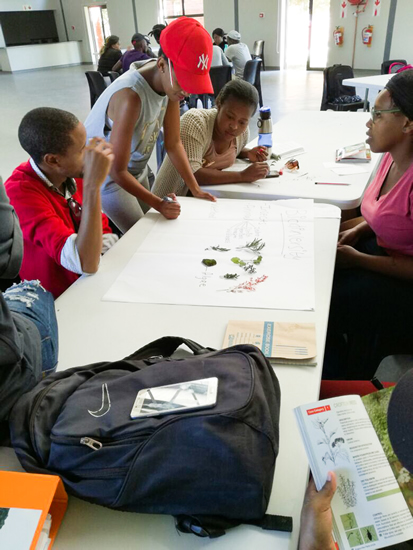 The Youth Environmental Services (YES) programme is reaching unemployed youth in isolated areas of the Free State and Northern Cape, with the aim of stimulating employment in the environmental sector.
The Youth Environmental Services (YES) programme is reaching unemployed youth in isolated areas of the Free State and Northern Cape, with the aim of stimulating employment in the environmental sector.
A total of 270 youth from eight municipalities recently started their exciting journey, thanks to a partnership between the Department of Environmental Affairs and the Wildlife and Environment Society of South Africa (WESSA).
The programme offers a year-long learnership that exposes unemployed, disadvantaged youth between the ages of 18 and 35 to mentored work-integrated learning opportunities, environmental skills training and community service. Between 2017 and 2020 the partnership will have benefitted 2 430 youth – 270 from each province.
The youth receive one week of accredited training per month while the rest of the month sees them gaining workplace experience with hosts in the environmental sector, including nature reserves, animal welfare organisations, government departments, private consultancies, ecotourism establishments and municipalities. They receive a stipend for the work they do.
“We are working in rural areas where the levels of poverty and unemployment are high.
"For many of our participants, this is their first job.
“Their work covers administration, science, compliance monitoring, animal care, hospitality, waste management and enviro-education.”
One of the participants of the programme Lebogang Theletsane (27) said that the opportunity was a rare one especially in the rural area of Warrenton in the Northern Cape where she lives.
“We do not get many opportunities like this here. When we finish the programme we will not only have learnt a lot of skills but we will also receive a certificate which will give us further opportunities,” said Theletsane.
Another key aspect of the programme is the community service component. All participants spend two days per month giving back to their local communities. Some serve as teaching assistants and others as admin helpers at clinics, assistants at care centres, sports coaches, cleaners at parks or gardeners for the elderly.
The end goal is to see these youngsters grow into environmental ambassadors in their communities while allowing them to gain permanent employment in the sector.
"Our constant message to the youth is that they need to use their energy, new-found knowledge and experience and their own initiative to create their own job that
they should not settle for waiting for a scarce job,” Griffiths said.
From domestic worker to doctor
From domestic worker to doctor JoyA young woman who washed dishes throughout high school to supplement her family’s income is now a professional who proves that hard work pays off.
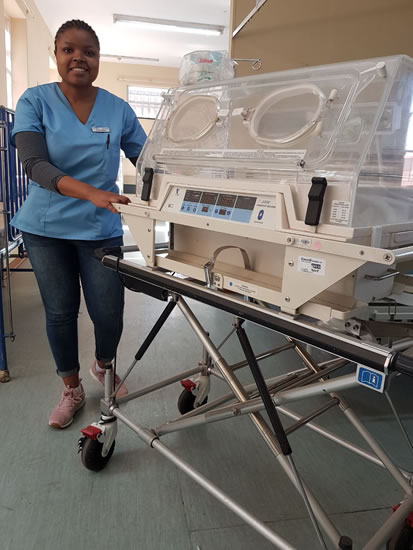 Former domestic worker, Pamela Phumzile Sithole is proof that dreams do come true.
Former domestic worker, Pamela Phumzile Sithole is proof that dreams do come true.
Born and raised in Phoenix in KwaZulu-Natal, the 24-year-old was able to juggle her studies with part-time work over the years having the ability to rise above her circumstances.
Despite working as a domestic helper from the age of 14, Sithole’s perseverance and determination helped turn her life around and she recently graduated with a Bachelor of Medicine and Bachelor of Surgery degree from the University of KwaZulu-Natal.
She is currently doing her internship at the Rahima Moosa Mother and Child Hospital in Johannesburg.
Sharing her story with Vuk’uzenzele the inspirational young woman said her journey was not easy.
“Growing up there were a lot of challenges, including our financial circumstances and my parents’ divorce.
“My mother was left to provide for us and she was unemployed for the longest time. As a result we had no choice but to rely on my siblings to put me through school from an early age up until high school which put a lot of financial strain on them.”
Despite these challenges, Sithole was determined to live up to her potential and applied herself diligently to her studies.
“For me giving up wasn’t an option.”
When she was a young teenager she got the opportunity to help do chores at a home nearby. This led to regular domestic work during her December holidays and Sithole was able to add to the family’s finances and help fund her high school studies.
Despite doing well in matric there was always the chance that she would not be able to study further because of a lack of funding. “I almost didn't go to a medical school,” she adds.
Her hard work and commitment to her studies paid off when she received funding from the National Student Financial Aid Scheme. This helping hand was to prove life changing.
“Even though I was a domestic worker, I didn’t shelve my dreams and think that it’s over for me. I continued to work hard and I’m glad that I did.
“For me it really was just a lesson in humility and it has enabled me to better understand people from different walks of life and be able to relate to each person.
“I always knew that good things lay ahead for me and it was truly just a matter of time.”
Her parting words are wise: “Never despise humble beginnings but equally, don't let them define where you will be in five or 10 years’ time.
With God, everything is possible.”
From taxi drivers to bus owners
From taxi drivers to bus owners lebangAn Ithala loan has changed the lives of 10 former taxi drivers, who are today the proud owners of a fleet of buses.
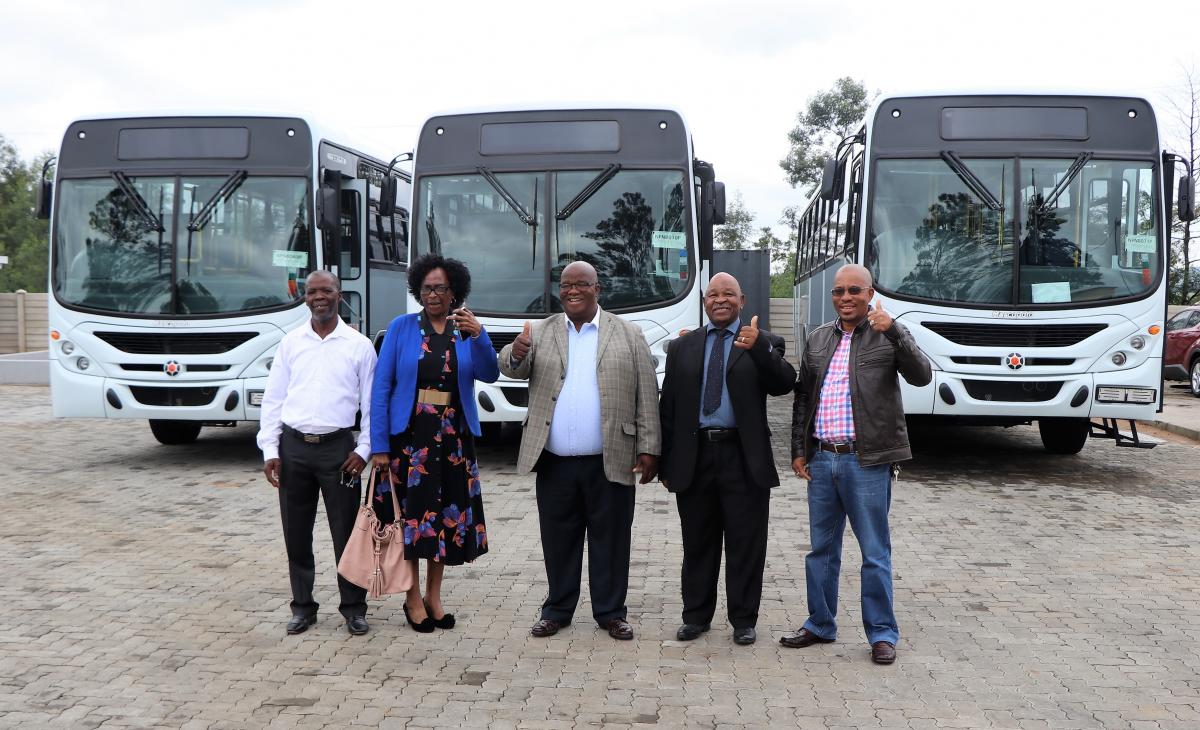 Eshowe-based bus co-operative Mlalazi Trading has purchased five new buses at a cost of R10.5 million.
Eshowe-based bus co-operative Mlalazi Trading has purchased five new buses at a cost of R10.5 million.
The investment – funded by Ithala Development Finance Corporation (IDFC) – will allow it to expand its fleet to 15 and offer four additional government-approved routes. Three of the new buses, each with a price tag of R2.1 million, have already been bought. The fifth bus will be used as a substitute to ensure fewer route interruptions.
“This is the beginning of great things,” said Thamsanqa Ngcobo, the chairperson of Mlalazi Trading.
The investment comes on the heels of Mlalazi Trading’s win at this year’s Ithala Business Achievers Awards. The co-operative walked away with the Logistical Services Business of the Year Award.
In addition to expanding its bus fleet, the co-operative is building a R1.5 million depot which it believes will improve the quality of its service and stakeholder relationships.
The story of Mlalazi Trading began seven years ago when the 10 members of the co-operative were all taxi drivers. They were approached by the Department of Transport to convert their taxi operation into a bus operation as a part of government’s ongoing efforts to implement transformation policies and diversify various sectors of the economy.
“When we started out we didn’t have money to buy new buses so the buses we used were leased. There were many hassles involved with that process though and in 2014, we collectively decided to apply for funding to buy eight buses. We went straight to Ithala because we knew it is the only bank that caters for the needs of the black market,” said Ngcobo.
The application was granted and they were able to purchase new buses. But shortly after that, the business started operating at a loss and they could not keep up with repayments.
Ngcobo said: “Ithala was very understanding during that difficult time and extended the repayment period until we were back on our feet.”
The co-operative currently employs 12 drivers, two workshop assistants, two bus washers and office staff.
Ithala acting group chief executive Themba Mathe said the IDFC’s key mandate is to be a catalyst for economic development and empowerment.
“We aim to be responsive to the development needs of the province’s people and proactive in identifying and catalysing entrepreneurial opportunities that become available.”
From vendor to VIP
From vendor to VIP LondekileIthala winner’s rags to riches story is a tale that every struggling youngster needs to hear.
Phumlani Ngwenya’s entrepreneurial spirit started as flicker of light and today is a beacon of inspiration sending out a bright message that great things can come from small beginnings.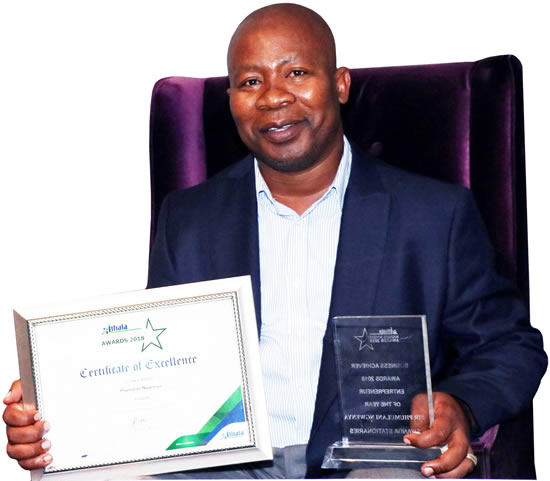
Needing to help his mother make ends meet he started selling boiled eggs and sweet potatoes after school to patients queuing outside a local doctor’s surgery. He progressed to selling paw-paws near a petrol station and was soon offered a part-time job as a petrol attendant. An opportunity to study later came his way and he qualified as a teacher.
His can-do attitude and willingness to work hard saw him climb the ladder to economic emancipation and today Ngwenya is a respected businessman who provides employment to 171 people.
This year, he was the overall winner of Ithala's Business Achievers Award. He won R100 000 which he plans on putting back into his business.
An emerging property mogul, Ngwenya owns a guest house and two hotels – Crocodile Creek, Magudu Inn and Kwalala Lodge – in Pongola, Zululand. His property portfolio includes six other commercial properties in various KwaZulu-Natal towns. These are leased to a variety of government departments.
His next project is a five-star hotel in Durban.
In 1999 he used his savings to build a four-bedroomed house which he intended to sell at a profit. Realising there was a demand for accommodation in Pongola however, he changed his mind and opened the area’s first B&B.
For the next year or two he struggled to keep his guest house full. Strange as it may seem it was a disease that put him on the map. When a cholera outbreak struck in 2002, there was suddenly a big demand for accommodation for nurses from other provinces. He was able to expand the lodge’s number of beds.
Ngwenya was suddenly being noticed. A tourism award enabled him to travel to the World Travel Market in London, a key international trade show, where he promoted a package put together with local community members. It included a township tour, traditional Zulu dancers, consultations with a sangoma and local school tours.
Soon he was ready to expand his portfolio but was unable to secure funding from commercial banks. He approached Ithala and his loan was approved within a month, setting in motion his rise to the top.
Ngwenya is inspired by hotel legend Sol Kerzner who, like Ngwenya, started out small but became a household name.
Happy end to family’s farm ordeal
Happy end to family’s farm ordeal LondekileThanks to government intervention, a woman whose life was made unbearable on the farm where she was born has found peace and security.
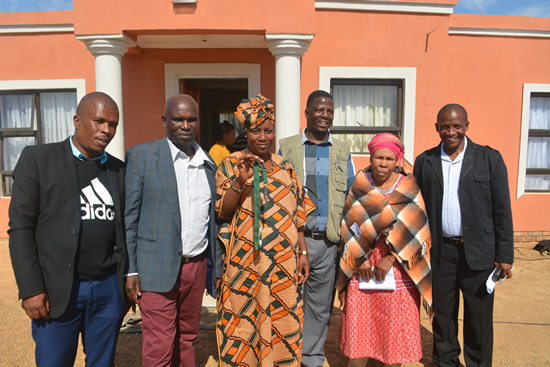
Julia Morulia Masilela (46) and her family are finally living in peace after many years of clashing with farm owners who attempted to evict them from a farm in Dorsfontein in Gauteng.
Masilela, who was born and raised at the Dorsfontein farm, told Vuk’uzenzele that life was fine until 2007 when the farm was sold.
“The owner made our lives miserable. We had livestock and he did not want our cattle to graze around the farm. He tried to evict us on many occasions. It was such a painful experience because it was the only home I had ever known. My family went through so much turmoil,” she said.
She said the farm owner did not want her family to have visitors or for the children to play around freely. In 2012, Masilela’s father passed away and things became even worse.
“We were threatened with another eviction,” she said.
“The owner then sold the farm to another farmer in 2015, and the new owner also wanted us to leave,” she added.
The Masilela family opened a case against the farmer and reported him to the Department of Rural Development and Land Reform in 2016.
It was only through the department’s intervention that the two parties managed to reach an agreement.
The Gauteng Provincial Shared Services Centre of the Department of Rural Development and Land Reform ensured that the family’s tenure was restored.
Through the Extension of Security of Tenure Act (ESTA), the department managed to broker an agreement with both parties for an off-farm settlement.
“In terms of the arrangement with the family, the department agreed to assist in identifying land outside the farm and the owner agreed to build a house for the family once the land had been secured,” the department said.
The department and the family identified land in Sokhulumi in the north east of Tshwane and the farm owner has built a house for the Masilelas.
It is a three-bedroom house that has a kitchen, lounge and a bathroom.
“I am happy to have left the farm because we used to live like we were in prison there. Even though I do not have a job for now, I live peacefully without being harassed by anyone. I have no worries,” said Masilela.
The mother of two said her sister’s children will come to stay with her next year when they register for schools nearby.
Masilela still has cattle but has arranged for them to be located elsewhere because she does not have space for them at her new home.
If you have a similar problem and live in Gauteng contact the Department of Rural Development and Land Reform on 012 337 3671/3672
Harnessing nuclear technology
Harnessing nuclear technology JoyThe South African Nuclear Energy Corporation SOC Ltd (Necsa) houses the country’s only nuclear research reactor which is the largest producer of a range of medical isotopes that are used for diagnosing and treating cancer.
Before the nuclear research reactor starts its 30-day cycle, Linina Bedhesi is entrusted with the job of performing calculations to ensure that the system operates safely.
The 27-year-old is a reactor analyst at Necsa and her job entails using calculation codes to do safety analysis for the reactor's core.
She performs heat and spent fuel calculations for the South African Fundamental Atomic Research Installation 1 (SAFARI-1).
SAFARI-1 is a 20 megawatt tank-in-pool type material testing nuclear research reactor. It is owned and operated by Necsa and located at Pelindaba 30 kilometres west of Pretoria.
Benefits of medical isotopes
 Millions of people have benefited from the medical isotopes originating from SAFARI-1.
Millions of people have benefited from the medical isotopes originating from SAFARI-1.
An isotope is a chemical element used to diagnose and treat cancer.
Patients in South Africa and internationally are treated with typical radioisotopes.
For the isotopes to be produced and for SAFARI-1 to keep running, Bedhesi performs core-follow calculations to establish the amount of fuel burnt during the reactor's cycle. Without these calculations the reactor cannot start.
“Heating calculations are important for the safety of the reactor. We need to know the amount of heat released per fission reaction and the spatial distribution of heat so that we can implement cooling in high temperature regions,” she explained.
“If we know that we can implement cooling in the reactor. And this is one of the biggest safety calculations that is needed,” she added.
For spent fuel calculations Bedhesi uses a calculational computer code to calculate the amount of uranium and plutonium in a spent fuel assembly for storage purposes.
Other scientists or technicians who do operational work at SAFARI-1 send Bedhesi data about the cycle under operation.
If any safety parameter is not met, it will compromise the safety of the reactor and the process cannot be initialised if Bedhesi tells the scientists at SAFARI-1 that it is not safe.
She works with three colleagues who perform the same calculations to ensure that no mistakes are made and that there is consistency.
Living her dream
Bedhesi was appointed as a reactor analyst at Necsa in August 2017 and it is already a job that is close to her heart.
She holds an undergraduate degree in Nuclear Science and Engineering from the University of Witwatersrand (Wits). Bedhesi also has an Honours Degree in Physics from Wits and is in the process of obtaining an MSc (Physics). Prior to enrolling at Wits, she had a scholarship to study biology in India.
A couple of years ago she found herself reading a brochure on BSc Nuclear Science and Engineering.
“While reading the brochure, I found myself more interested in the nuclear sciences. I think it is because my parents had a history of cancer. It was just an emotional journey for me,” she said.
Determined to succeed
“I registered for this course. I saw a picture of SAFARI-1 in the brochure and told myself that one day I will work at Necsa. At the end of my second year of study I contacted Necsa’s human resource section and asked if I could do vacation work and I was granted the opportunity. That is how my journey began in December 2013,” she said.
When her peers went home for school holidays, Bedhesi made her way to Necsa to gain work experience.
“I also did my Honours project at Necsa, and am continuing with my Masters work here as well,” she said.
She said there is a huge gap of knowledge between her seniors and the juniors in the field which needs to be filled.
“There are many people in the late years of their careers and there are very young people. There is also a lack of skills,” she said.
However, Bedhesi said the nuclear science field is very rewarding and her hard work pays off. She gets to attend international conferences and to present her work to people from across the globe.
“During my time at Necsa, I have obtained two awards at the South African Institute of Physics Conference for my MSc work. I also received two postgraduate merit awards from Wits University. My work is extremely exciting, and I enjoy the challenges that come with it,” she said.
What is most exciting for her is that a female scientist is given the same opportunity as males in the science field, although she feels that science is still very much male-dominated globally.
Jobs - Justice and Constitutional Development
Jobs - Justice and Constitutional Development Estelle GreeffAssistant State Attorney, (LP3-LP4)
Reference: 18/53/SA
Salary: R265 284 – R759 603. (Salary will be in accordance with OSD determination). The successful candidate will be required to sign a performance agreement.
Requirements: An LLB or 4 year recognized legal qualification; Admission as an Attorney; At least 2 years appropriate post legal/litigation experience; Right of appearance in the High Court of South Africa will be an added advantage; Admission as a conveyancer will be an added advantage; A valid driver’s licence.
Enquiries: Mr E. Seerane (012) 315 1780
Closing Date: 08 June 2018
Note: Interested applicants may visit the following website: www.justice.gov.za or www.dpsa.gov.za to view the full job specification of the above positions. Applications must be submitted on Form Z83, obtainable from any Public Service Department or on the internet at www.gov.za. A Z83 form & CV must be accompanied by original certified copies of qualifications, identity document and a driver’s licence where necessary. A SAQA evaluation report must accompany foreign qualifications. Applications that do not comply with the above mentioned requirements will not be considered. All shortlisted candidates for SMS posts will be subjected to a technical and competency assessment. Candidate will complete a financial disclosure form and also be required to undergo a security clearance. The foreigners or dual citizenship holder must provide the Police Clearance certificate from country of origin.
The DOJ&CD is an equal opportunity employer. In the filling of vacant posts the objectives of section 195 (1) (i) of the Constitution of South Africa, 1996 (Act No: 108 of 1996), the Employment Equity imperatives as defined by the Employment Equity Act, 1998 (Act No: 55 of 1998) and relevant Human Resources policies of the Department will be taken into consideration. Reasonable accommodation shall be applied for People with Disabilities including where drivers licence is a requirement. Correspondence will be limited to short-listed candidates only. If you do not hear from us within 3 months of this advertisement, please accept that your application has been unsuccessful. The department reserves the right not to fill these positions. Women and people with disabilities are encouraged to apply and preference will be given to the EE Target.
Jobs - Justice and Constitutional Development - June 2018
Jobs - Justice and Constitutional Development - June 2018 Estelle GreeffDeputy Director: Budget Management (re-advertisement)
Reference: 18/58/CFO
Package: R657 558 – R774 576 per annum (All inclusive). The successful candidate will be required to sign a performance agreement.
Requirements: A Bachelor’s Degree/National Diploma in Finance or Business Management/Administration; At least 3 years in finance environment; 3 years at managerial level; Knowledge of the Public Finance Management Act, Treasury Regulations, Public Service Act and Regulations, BAS (Basic Accounting System) PERSAL and Vulindlela Management System; Experience in and knowledge of, a commercial finance functions; A valid driver’s licence.
Enquiries: Ms. E Sebelebele (012) 357 8662
Senior Lecture: Information Technology Business Application (1 year contract appointment)
Reference: 18/54/JC
Package: R657 558 – R774 576 (All inclusive). The successful candidate will be required to sign a performance agreement
Requirements: A National Diploma/Degree in Information Technology or equivalent qualification related to information technology; 3 years’ experience in training environment at supervisory level; Advanced certificate in End user training at NQF level 6; Knowledge of and experience in applying formal training methodologies, standards frameworks and tools; Certificate in advanced end user computing skills; A valid driver’s licence. The following will serve as an added advantage: Honors degree; Assessor an moderator Certificate; Experience in curriculum development.
Enquiries: Ms. P Leshilo (012) 357 8240
Assistant Director: Internal Control (readvertisement) (12 months contract appointment)
Reference: 18/56/CFO
Salary: R334 545 + 37% = R458 326 in lieu of benefits. The successful candidate will be required to sign a performance agreement.
Requirements: 3 years Degree/ National Diploma in Financial Accounting/ Financial Management or equivalent qualification at NQF6; A minimum of 3 years relevant experience in the field of Finance which must include Internal Control experience as a State Accountant; Knowledge of Financial Provisioning and/ or Administration procedures and processes; Knowledge of the Public Finance Management Act (PFMA), Treasury Regulations and other legislative prescripts; A valid driver’s licence.
Enquiries: Ms N Joseph (012) 357 8646
Assistant State Attorney, (LP3-LP4) (re-advertisement)
Reference: 18/57/SA: Pretoria
Salary: R265 284 – R759 603. (Salary will be in accordance with OSD determination). The successful candidate will be required to sign a performance agreement.
Requirements: An LLB or 4 year recognized legal qualification; Admission as an Attorney; At least 2 years appropriate post qualification legal/litigation experience; Right of appearance in the High Court; Conveyancing will be an added advantage; A valid driver’s licence.
Enquiries: Ms K Ngomani (012) 357 8661
Closing date: 22 June 2018
Note: Interested applicants may visit the following website: www.justice.gov.za or www.dpsa.gov.za to view the full job specification of the above positions. Applications must be submitted on Form Z83, obtainable from any Public Service Department or on the internet at www.gov.za. A Z83 form & CV must be accompanied by original certified copies of qualifications, identity document and a driver’s licence where necessary. A SAQA evaluation report must accompany foreign qualifications. Applications that do not comply with the above mentioned requirements will not be considered. All shortlisted candidates for SMS posts will be subjected to a technical and competency assessment. Candidate will complete a financial disclosure form and also be required to undergo a security clearance. The foreigners or dual citizenship holder must provide the Police Clearance certificate from country of origin.
The DOJ&CD is an equal opportunity employer. In the filling of vacant posts the objectives of section 195 (1) (i) of the Constitution of South Africa, 1996 (Act No: 108 of 1996), the Employment Equity imperatives as defined by the Employment Equity Act, 1998 (Act No: 55 of 1998) and relevant Human Resources policies of the Department will be taken into consideration. Reasonable accommodation shall be applied for People with Disabilities including where drivers licence is a requirement. Correspondence will be limited to short-listed candidates only. If you do not hear from us within 3 months of this advertisement, please accept that your application has been unsuccessful. The department reserves the right not to fill these positions. Women and people with disabilities are encouraged to apply and preference will be given to the EE Target.
Tel: 012 315 1111 Private Bag X81, Pretoria, 0001 Momentum Centre, 329 Pretorius Street, Pretoria www.justice.gov.za
Jobs - Labour June 2018
Jobs - Labour June 2018 Estelle GreeffWorkshop Team Leader ( 3 posts)
SEE: Cape Town ( Ndabeni)
Reference No: HR 5/18/05/18(1 post)
SEE: Johannesburg
Reference No: HR 5/18/05/19
SEE: Pretoria (Silverton)
Reference No: HR 5/18/05/20
Commencing: R334 545 per annum
Ms. G Manamela, Tel: (012) 843 7300
Assistant Director: Employment Relations
Centre: Directorate: Employment Relations, Head Office
Reference No: HR 4/18/06/41HO
Salary: Commencing: R 334 545 per annum
Enquiries: Mr. TC Skosana, Tel: (012) 309 4720
Application Development: Java
Centre: Chief Directorate: Information Communication Technology, Head Office
Reference No: HR 4/18/06/44HO
Salary: Commencing: R 334 545 per annum
Enquiries: Ms. E Cronje, Tel: (012) 309 4876
Application Development: PL/SQL
Centre: Chief Directorate: Information Communication Technology, Head Office
Reference No: HR 4/18/06/40HO
Salary: Commencing: R 334 545 per annum
Enquiries: Ms. E Cronje, Tel: (012) 309 4876
Deputy Director: Labour Centre Operations (4 posts)
Centre: Labour Centre: Mkhondo
Reference No: HR 4/4/7/42
Labour Centre: Garankuwa
Reference No: HR 4/4/4/05/07
Labour Centre: Sebokeng
Reference No: HR 4/4/4/05/12
Labour Centre: Atteridgeville
Reference No: HR 4/4/4/05/04
Salary: All inclusive: R 779 295 per annum
Enquiries: Ms. M Mazibuko Tel: (013) 655 8701; Mr. MJ Zigana Tel: (011) 853 0316; Mr. MC Luxande Tel: (011) 853 0307
Career Counsellor Grade 1
Centre: Labour Centre: Christiana
Reference No: HR4/4/9/508
Salary: Commencing: R514 476 (OSD)
Enquiries: Mr OPS Sebapatso, Tel: (018) 387 8100
HEAD OFFICE
Chief Director: Human Resources Management, Department of Labour, Private Bag X117, Pretoria, 0001 or hand deliver at 215 Francis Baard Street, Laboria House
PROVINCIAL OFFICES
Chief Director: Provincial Operations: Mpumalanga, Department of Labour, Private Bag X7263 WITBANK, 1035
Chief Director: Provincial Operations: Department of Labour, Gauteng, PO Box 4560, JOHANNESBURG, 2000
Chief Director: Provincial Operations: Department of Labour, North West, Private Bag X2040, MMABATHO, 2735
CLOSING DATE FOR APPLICATIONS: MONDAY, 2 JULY 2018 at 16:00
For full details of the advertised posts visit our website: www.labour.gov.za
Applications must be submitted on form Z83, obtainable from any Public Service Department or on the internet at www.gov.za/documents. The fully completed and signed form Z83 should be accompanied by a recently updated, comprehensive CV as well as recently certified copies of all qualification(s) including a Senior Certificate and ID-document [Driver’s license where applicable]. Non-RSA Citizens/Permanent Resident Permit Holders must attach a copy of their Permanent Residence Permits to their applications. Should you be in possession of a foreign qualification, it must be accompanied by an evaluation certificate from the South African Qualification Authority (SAQA). Applicants who do not comply with the above-mentioned requirements, as well as applications received late, will not be considered. The Department does not accept applications via fax or email. Failure to submit all the requested documents will result in the application not being considered. Correspondence will be limited to short-listed candidates only. If you have not been contacted within eight (8) weeks after the closing date of this advertisement, please accept that your application was unsuccessful. Suitable candidates will be subjected to a personnel suitability check (criminal record, citizenship, credit record checks, qualification verification and employment verification). Where applicable, candidates will be subjected to a skills/knowledge test. All shortlisted candidates for SMS posts will be subjected to a technical competency exercise that intends to test relevant technical elements of the job, the logistics of which be communicated by the Department. Following the interview and technical exercise, the selection panel will recommend candidates to attend generic managerial competencies using the mandated DPSA SMS competency assessment tools. Successful candidates will be appointed on a probation period of 12 months. The Department reserves the right not to make any appointment(s) to the above post. The successful candidate will be expected to sign a performance agreement. The Department of Labour is an equal opportunity affirmative action employer. The employment decision shall be informed by the Employment Equity Plan of the Department. It is the Department’s intention to promote equity (race, gender and disability) through the filling of this post(s) with a candidate whose transfer / promotion / appointment will promote representativity in line with the numerical targets as contained in our Employment Equity Plan.
Stay in touch with the department, visit: website: www.labour.gov.za Facebook: Department of Labour twitter: @deptoflabour
Joining hands for healthier kids
Joining hands for healthier kids LondekileA private-public partnership focusing on nutrition education will help ensure that children are well fed and healthy.
With more than two billion people declared overweight or obese in the world and about 800 million malnourished, the Department of Basic Education (DBE) has partnered with Nestlé South Africa to promote the overall health and wellbeing of South African children.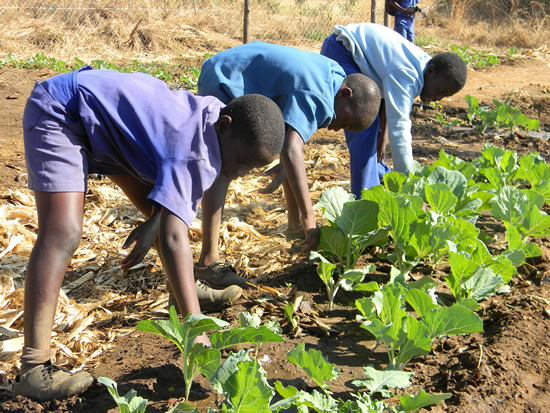
In a global initiative which aims to help 50 million children by 2030, Nestlé South Africa has announced its global “Nestlé for Healthier Kids” initiative. It aims to reach over 50 percent of South Africa’s primary school learners by 2020.
The impact of the initiative will be measured by a nutrition education study undertaken by the Vaal University of Technology.
The results of the study are due later this year and will be used to enhance the current life skills curriculum at schools.
Since its foundation, Nestlé has been committed to helping parents and caregivers provide the right nutrition for their children.
Nestlé South Africa spokesperson Ravi Pillay said the company wants to help parents make informed and healthier food choices for their children.
“We are also proud to have partnered with the DBE on facilitating nutrition and quality physical education programmes, which are developed and prescribed by government, to children between the ages of six and 12,” he said.
The partnership between Nestlé South Africa and the DBE started in 2012 when they signed a Memorandum of Understanding (MoU) on nutrition education.
Through the MoU, the department and Nestlé South Africa have been teaching children, parents, food handlers and communities about the importance of hygiene and packing nutritious meals.
Pillay said the initiative will target schools that fall under quintile three and below because those are the schools in which children receive meals at school through the department’s National Schools Nutrition Programme (NSNP).
The NSNP aims to enhance the learning capacity of students through the provision of healthy meals at schools. Where it is implemented, the programme has been shown to improve punctuality, regular school attendance, concentration as well as the general wellbeing of learners.
The department’s NSNP director, Neo Rakwena, said the programme aims to address risk factors related to malnutrition and under-nourishment in our learners.
Did you know?
The NSNP benefits more than 9 million learners in more than 21 000 schools.
Milestone for KZN circumcision programme
Milestone for KZN circumcision programme LondekileMelusi Yende is the one millionth man to undergo male medical circumcision in KwaZulu-Natal as part of a massive campaign to encourage men to get circumcised.
Male medical circumcision (MMC) reduces the chances of being infected by HIV and Aids and sexually transmitted infections. 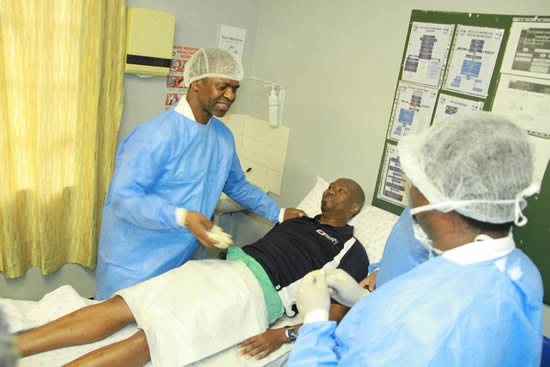
Speaking to Vuk’uzenzele Yende encouraged men to get circumcised.
“I am a proud KwaZulu-Natal son. I wanted to use my profile to speak to men in the province and educate them about the health benefits of being circumcised. Today is a very proud day for me,” said Yende.
The event which was held at Sivananda Clinic at Ohlange in Inanda, Durban, was part of the celebration of the success of the (MMC) programme in the province.
Yende is a well-known actor who has appeared in television programmes such as Generations, Muvhango and Rhythm City.
He said that he was happy to be the one millionth man to be circumcised.
“I am hoping that this initiative will encourage other men to go to their nearest clinic to get circumcised. I want people to know that if I can do it so can they. I am encouraging men in KwaZulu-Natal to ensure two million men get circumcised.”
Yende added that going under the knife and being circumcised by the KwaZulu-Natal Health MEC Dr Sibongiseni Dlomo was nerve wrecking and exciting.
“I had mixed emotions about being circumcised. I was nervous and excited but MEC Dhlomo was professional and he let me know what was going to happen. Everything was fine the procedure only took about 15 minutes.”
MEC Dlomo said having one million men circumcised in his province was a good story to tell.
“It is not just the process of circumcising that is an issue it is the period that comes after and the benefits for men who are circumcised … We are informed by researchers that there is a protection of up to 60 percent, this is not 100 percent which means you must use a condom over and above being circumcised.”
The MMC programme works in combination with condoms and other prevention strategies.
Isilo Samabandla namaKhosi King Goodwill Zwelithini leads the MMC campaign in the province.
Did you know?
Getting circumcised medically is the right thing to do for your health as it:
- Improves hygiene and reduces the risk of sexually transmitted infections (STIs) such as chancroid, syphilis, genital warts and herpes.
- Reduces the risk of HIV infection as it decreases tearing and bruising that can be an entry point for HIV.
Ministers lay BRICS foundation
Ministers lay BRICS foundation vuyelwanInternational Relations / Africa News
The emerging economies grouping of Brazil, Russia, India, China and South Africa (BRICS) is ready for its 10th summit hosted by South Africa next month.
Minister of International Relations and Cooperation Lindiwe Sisulu believes this year’s BRICS summit is a testimony to the co-operation and commitment to implement resolutions taken at previous BRICS summits.
Minister Sisulu was speaking during a meeting of ministers from the BRICS countries, including China's Wang Yi, Russia’s Sergey Lavrov, India’s Sushma Swaraj and Brazil’s Marcos Galvão. 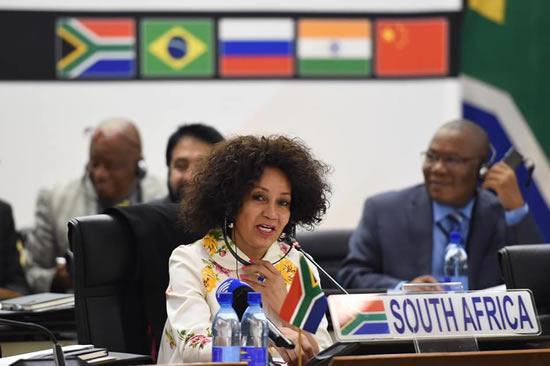
The meeting laid the foundation for the 10th BRICS Summit taking place in July under the theme ‘BRICS in Africa: Collaboration with Developing Countries for Inclusive Growth and Shared Prosperity in the 4th Industrial Revolution.
The theme resonates with the core priorities of all BRICS members notably to strive for the creation of an inclusive society and global partnerships that will bring prosperity to all humankind.
The deliberations, which Minister Sisulu described as ‘fruitful’, reaffirmed BRICS’s commitment to the United Nations (UN) as the universal multilateral organisation entrusted with maintaining international peace and security, advancing global development and promoting and protecting human rights.
The ministers committed to intensifying dialogue amongst the BRICS countries on the administration and budget of the UN with a view to strengthening the organisation and preserving its member state-driven character.
Down to business
With regard to economic development they underlined their firm commitment to free trade and the centrality of a rules-based, transparent, non-discriminatory, multilateral trading system (MTS) as embodied in the World Trade Organisation (WTO). This includes opposing the new wave of protectionism and the systematic impact of unilateral measures that are incompatible with WTO rules and undermine global trade and economic growth.
In this regard they re-iterated that the WTO Dispute Settlement System is a cornerstone of the MTS as it is designed to enhance security and predictability in international trade.
Monitoring infrastructure through drone techonogy
Monitoring infrastructure through drone techonogy JoyCutting-edge technology adds a new dimension to monitoring service delivery.
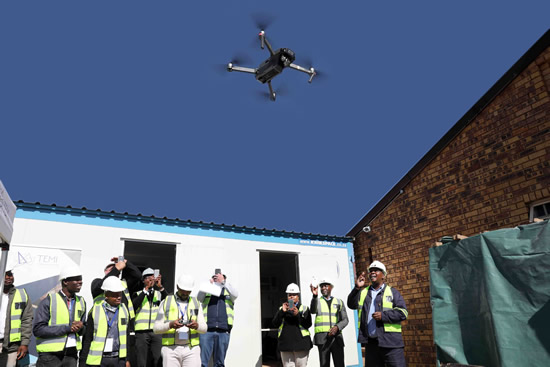 The construction process of building schools, clinics or libraries will be monitored by the use of a drone thanks to a new initiative launched by the Gauteng Department of Infrastructure Development (DID).
The construction process of building schools, clinics or libraries will be monitored by the use of a drone thanks to a new initiative launched by the Gauteng Department of Infrastructure Development (DID).
Chief Director of the Infrastructure Research and Planning Division Amanda Moletsane (33) is the young lady who is leading the pack in the implementation of the drone project.
She said including cutting- edge technology with service delivery adds a new dimension to the monitoring capability of the DID.
“When we came up with this project we were looking at how we could deliver in a timeous, cost-effective and more efficient manner when monitoring our projects around the province.”
Moletsane and her team started piloting the drone programme in January this year and selected 63 projects including clinics, schools and community centres to test the use of the a drone to monitor a construction project.
The drone has a camera and feeds live video and images to a remote controlor a mobile phone which can be used remotely. This means an operator can film a construction project to check developments and possible problems.
“The drone checks if there were people on site and if there is equipment and material for the work to be done. It would also give feedback on how far the project is in its completion.”
She added that it cost her division about R55 000 to purchase the drone, train one of her team members to be a drone pilot adhere to South African Civil Aviation Authority regulations to drone operation.
Moletsane said it usually cost government about R2 million to monitor infrastructure projects in the department.
“On average, for officials to physically go to the site to monitor the progress of work they need to drive about 30 to 40 kilometres for one project. To manage a fleet of government cars costs about R2 million. The use of a drone is cost-effective and efficient.”
She also said when her team was looking at implementing the programme it was looking for something innovative that would keep up with current technological monitoring avenues in the construction industry.
The drone is housed at the DID’s nerve centre, at Lutsinga Infrastructure House.
DID MEC Jacob Mamabolo said the new intervention essentially combines human intelligence, business intelligence and now artificial intelligence to ensure that the entire value chain of project delivery is efficient and that projects are delivered on time, within cost and at the right quality.
NHI improves access to health in KZN
NHI improves access to health in KZN JoyThe National Health Insurance (NHI) scheme is boosting health services and infrastructure in KwaZulu-Natal. Through the scheme more people in the province are accessing health care initiatives than before.
KZN Health MEC Sibongiseni Dhlomo has been conducting awareness roadshows about the NHI in the province, and visited UMzinyathi district earlier this week. These roadshows aim to educate communities on government’s plans to improve access to health treatment.
 NHI is currently being piloted in three districts: Amajuba, Umzinyathi and Umgungundlovu.
NHI is currently being piloted in three districts: Amajuba, Umzinyathi and Umgungundlovu.
NHI is a government health financing system designed to ensure that all South Africans have access to quality, affordable health services, regardless of their socio-economic status and health needs. Pilot programmes to test the NHI were implemented countrywide in 2012.
In KZN, NHI has assisted with the implementation of the Re-Engineering of Primary Health Care system, which aims to provide greater access to quality healthcare through Family Health Teams, School Health Teams, District Clinical Specialist Teams and GPs/ doctors contracted to provide medical coverage in clinics in various wards.
Among the most notable benefits of NHI is the participation of general practioners in the Health Practitioners Contracting programme, which sees doctors visiting clinics at least once a week in remote areas of the province. This has led to improved medical coverage, better reviewing of and consultation with patients on chronic medication, decongestion of hospitals, and knowledge and skills-sharing opportunities for nurses.
Improvements in infrastructure had also been made in the building of hospitals, clinics and consulting rooms at the pilot sites since 2012. Construction has begun on the Pixley Isaka ka Seme Hospital in KwaMashu and three community health centres in Pomeroy, Dannhauser and Jozini and 17 new clinics have been built. The department has also spent over R886 million on facility upgrades and maintenance.
The department has also appointed highly experienced health facility managers, and trained managers at various levels to improve leadership and governance.
Meanwhile NHI pilot programmes around the country have also taken off. The Eastern Cape opened phase 1 of the Cecilia Makiwane Hospital in 2016, and the North West provincial government purchased 65 service delivery vehicles such as ambulances, mobile clinics, and patient transport vans in 2012.
Plans to change TB treatment
Plans to change TB treatment lebangThe introduction of Bedaquiline means South Africa is the first country in the world to dispense this type of treatment.
Patients with Multidrug Resistant Tuberculosis (MDR-TB) will now be able to receive life changing treatment as the Department of Health begins its roll-out of Bedaquiline.
According to the department’s drug resistant TB director Norbert Ndjeka, Bedaquiline will replace the old system which makes use of injections to administer MDR-TB treatment.
“This means that for the first time, an injection-free regimen will be recommended for all patients with Rifampicin Resistant Tuberculosis in South Africa. Additionally, patients with MDR-TB will now also receive Bedaquiline as part of a more patient friendly short regimen, which is expected to improve adherence and ensure success,” he said.
The introduction of Bedaquiline means South Africa is the first country in the world to dispense this type of treatment.
The department says Bedaquiline has been hailed for its effective treatment and short turnaround time.
“Treating patients with drug resistant TB was difficult with old medicines, which had many negative side effects and over long periods often up to 24 months.”
In addition, the treatment is known for reducing the number of deaths and having fewer side effects in comparison to its injectable counterpart, which could result in hearing loss for some MDR-TB patients.
“We started the roll-out with facilities that are ready to implement. This will be done in a phase by phase approach. We will then assist and capacitate those provinces that need assistance,” said Ndjeka.
It is anticipated that roll-out across the country will be concluded between the next three to six months.
Protect children: Parents of the future
Protect children: Parents of the future JoyChildren are parents of the future and if they are not well taken care of or protected the future of the nation will be problematic.
 This is according to Johannesburg Child Welfare Director Carol Bews.
This is according to Johannesburg Child Welfare Director Carol Bews.
She said the future of South Africa is directly linked to how citizens treat their children.
“We need to do the best that we possibly can as communities to help parents take care of children. A lot of us do not take that seriously and that is why South Africa is ranked amongst the top when it comes to the abuse of children," said Bews.
“Above 90 percent of South African children are either exposed to violence or have their rights violated, and 40 percent of child abuse cases are related to sexual abuse. We have so many children in the country who are abandoned,” she added.
Bews is concerned that sometimes child abuse occurs in places like schools where children are supposed to be safe.
Some of the physical signs of a child who is being abused include bruises and marks. However there are also psycho-social signs, such as a child who shies away from people or is more sensitive to people who make noise or speak harshly and a child who does not want to play with other children.
She also said in many cases child abusers are often people who abuse alcohol and drugs.
Johannesburg Child Welfare is a Child Protection Organisation (CPO) registered with the Gauteng Department of Social Development, in terms of the Children’s Act, to provide a statutory service for the prevention and early intervention, for children between zero and 12-years-old.
Bews said her organisation has two homes that look after about 120 children.
“We take care of children who were abandoned at birth, some were neglected by their parents and others have been abused in various ways including rape and attempted murder,” she said.
She said children who have been abused suffer a lot of trauma and have to go to counselling.
“Violent crimes against children as released in a report by the South African Police Service remain high in the country. According to SAPS, 38 995 cases of sexual offences against children were reported in the past year,” she said.
“This figure indicates that violence against children, especially, sexual violence in the country is still a major concern,” she added.
She said sexual abuse against children has a major long-term effect on all aspects of a child’s development and even when they become adults.
DO YOU NEED HELP?
To prevent violent incidents of child-related abuse and neglect, including gender based violence in the households, the Department of Social Development established the Gender-Based Violence Command Centre (GBVCC) to provide counselling and support.
The toll-free number for command centre is 0800 428 428. Callers can also request a social worker from the command centre to contact them by dialling *120*7867# (free) from any cell phone.
SA positive after free trade deliberations
SA positive after free trade deliberations vuyelwanInternational Relations / Africa News
The Deputy Minister of Trade and Industry, Bulelani Magwanishe, was among the African leaders who gathered at the 6th African Union Ministers of Trade (AMOT) meeting in Dakar, Senegal, to discuss continental free trade issues.
The meeting was preceded by the 11th Meeting of the African Continental Free Trade Area (AfCFTA) Negotiations Forum and the 6th Meeting of the AfCFTA Committee of Senior Officials of Trade.
The push for African free trade gained momentum in March when an Extra-Ordinary Summit of the African Union (AU) Heads of State and Government resulted in the signing of the AfCFTA Agreement by 44 countries and the signing of the declaration establishing the AfCFTA by 43 countries. 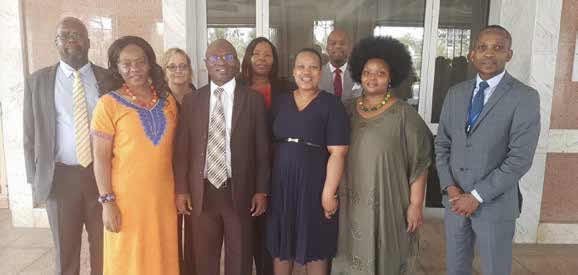
The AfCFTA offers an opportunity to create larger economies of scale, a bigger market and improve the prospects of the African continent to attract investment. South Africa is committed to a co-ordinated strategy to boost intra-Africa trade and to build an integrated market in Africa of over one billion people with a GDP of approximately US$3.3 trillion.
Beyond the Tripartite Free Trade Area, the AfCFTA will provide new export opportunities for South African products in West Africa and North Africa.
The AfCFTA is being pursued under the development integration approach that combines market integration with industrial and infrastructure development to address Africa’s production capacity and supply constraints, promote the diversification of Africa’s export base from dependence on raw materials to value added products, and to alleviate the infrastructure deficit on the continent.
Deputy Minister Magwanishe said that the conclusion of the annexes to the Protocol on Trade in Goods and the annexes to the Protocol on Dispute Settlement is a significant achievement.
“The conclusion of this work enables South Africa to rapidly commence domestic processes for signature of the AfCFTA,” he said.
He explained that the disciplines on modalities for tariff liberation must support the creation of commercially meaningful value-chains in Africa to attract investment in job creating sectors.
The outcomes of the 6th AMOT meeting will be submitted and considered by the UN Assembly of Heads of State and Government to be held in Mauritania next month.
Sisterly bond not affected by politics
Sisterly bond not affected by politics LondekileThe Mngomezulu sisters Thandi and Neli from Molweni in Durban KwaZulu-Natal are members of different political parties but are able to live in harmony.
Thandi is a dedicated National Freedom Party (NFP) card carrying member while Neli is a passionate ANC (African National Congress) member. 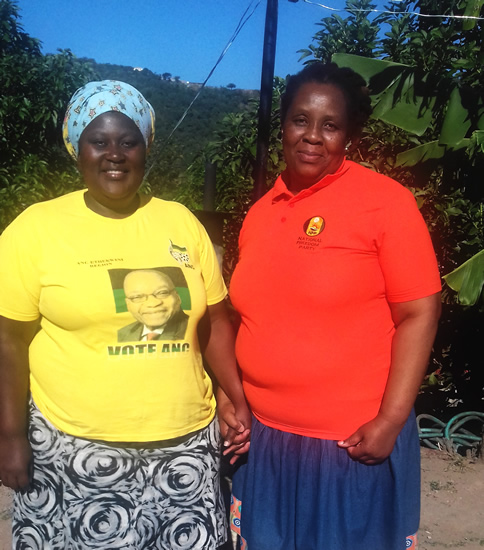
Neli told Vuk'uzenzele that irrespective of their political differences they are still sisters.
“We have respect for one another. When I left NFP to join ANC in 2014 I told my sister that I have taken a decision to be an ANC member. My sister didn’t label me as her enemy she respected my decision.”
“If she cooks she dishes for everyone at home including me. We do all things that the family does together. Our political differences here at home and the way we treat each other has helped me learn how to treat other people from different political parties,” Neli said.
Neli adds that when she comes across people who do not share the same political ideologies she does not see them as an enemy.
In recent months the KwaZulu-Natal province has been experiencing alleged political killings with ANC activist Musawenkosi Mchunu and Inkhatha Freedom Party (IFP) councilor Sibuyiselo Dlamini being shot dead in separate incidents.
After these incidents President Cyril Ramaphosa instructed Police Minister Bheki Cele, State Security Minister Dipuo Letsatsi-Duba, Justice Minister Michael Masutha, National Prosecuting Authority head Shaun Abrahams and National Police Commissioner Khehla Sithole to work as a committee to solve the suspected political killing in the province.
Neli strongly condemned the supposed political killing saying that it was taking her province to the apartheid era where the ANC and the IFP were fighting which led to loss of lives.
“We do not want to see that happening again. People need to accept each other’s political differences. We cannot claim that we are free when we are still killing one another,” Neli said.
Thandi said enough is enough and stressed that people should stop killing each other.
“In politics there might be hot debate from time to time but it does not mean we should kill each other. Our leaders in parliament debate and argue but once outside they share jokes. We should learn from them,” she said.
Minister Cele said the committee appointed by President Ramaphosa is awaiting the final report from the Moerane Commission of inquiry which was established by Premier Willies Mchunu in 2016 to investigate political violence in KwaZulu-Natal.
The Fall lifts the curtain on youth issues
The Fall lifts the curtain on youth issues vuyelwanSport, Arts & Culture
An award-winning play is the perfect vehicle to get Youth Month dialogue started.
Social categorisations such as race, class and gender, as well as the ideologies of patriarchy and sexism, are currently being tackled head-on in a play titled The Fall.
It reflects on the University of Cape Town’s (UCT) #RhodesMustFall movement and is on at the South African State Theatre until 24 June. The play is the headline production of the theatre’s 10th Annual Youth Expression Festival which commemorates Youth Month.
The #RhodesMustFall protest began on 9 March 2015. Within a month, following a UCT Council vote, a statue commemorating Cecil Rhodes, situated at the foot of the university’s famous Jameson Steps, was removed. 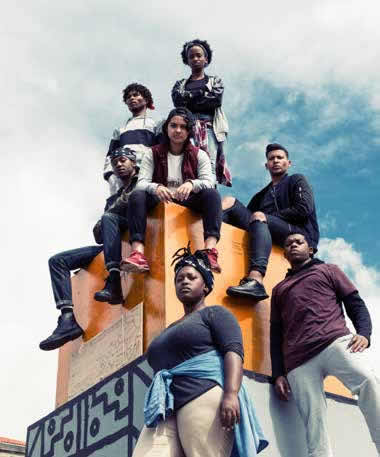
The campaign for the statue's removal led to a wider movement to decolonise education across South Africa which garnered global attention.
Ameera Conrad, one of the writers and a director of The Fall, said the play seeks to unpack discrimination in all its forms.
“It provides a point of reference in terms of what motivated students to act and why they found the Rhodes statue offensive. The play hopes to bridge the generational gap between the current generation’s outlook, attitudes and motivations and the older generations’ perspective on topical issues such colonisation, sexuality and racial discrimination,” Conrad said.
The play also looks back on what gains were made and what developments arose from the students’ demonstrations.
It is the brainchild of seven UCT drama graduates who share their personal experiences during the #RhodesMustFall, #FeesMustFall and subsequent student movements that swept through South Africa in 2015 and 2016.
The play has been performed to sold-out success at the Baxter Theatre Centre (two seasons) and recently at the Edinburgh Assembly Fringe Festival in Scotland.
It received the 2017 Fleur du Cap Special Encore Award and most recently the prestigious Scotsman Fringe First and the Stage Acting Award at the Fringe Festival. Along the way, it amassed five-star reviews.
“The play does not offer solutions to the questions raised by the movements which inspired it but hopes to create and nurture dialogue on intersectional and institutionalised discrimination against the marginalised,” Conrad said.
The Fall is a frank collaborative piece of workshop theatre devised by the cast, facilitated by Clare Stopford, and curated by Conrad and Thando Mangcu, two members of the ensemble. The dynamic cast comprises Conrad, Oarabile Ditsele, Tankiso Mamabolo, Sizwesandile Mnisi, Sihle Mnqwazana, Cleo Raatus and Zandile Madliwa.
The play will not be staged elsewhere in Gauteng. It is 80-minutes long with no intervals and a 16 or older age restriction applies.
Tickets can be bought at Computicket for R110, and R100 for students.
The struggle for a living wage continues
The struggle for a living wage continues Joy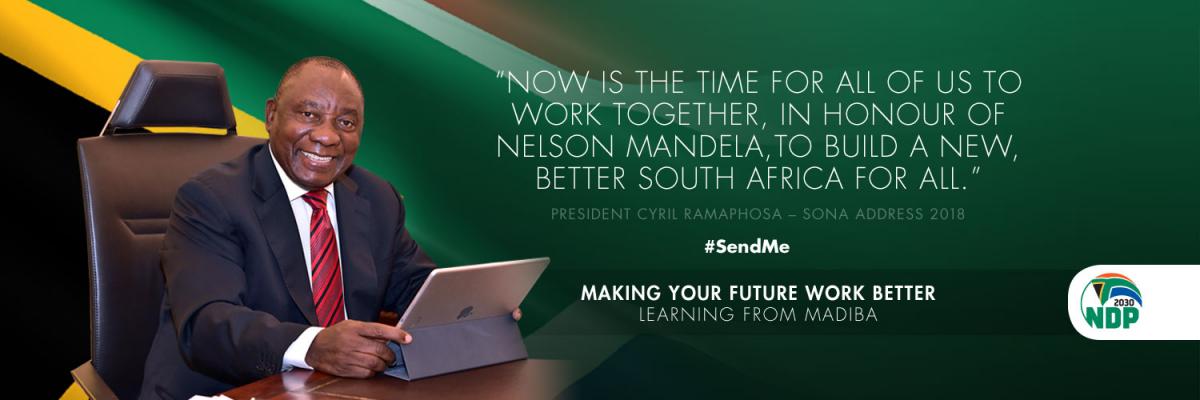
Certainly on top of the minds of many South Africans is the progress made regarding the National Minimum Wage Bill, an important development in our historical and necessary struggle for a living wage.
I am particularly excited about progress on this Bill because it signifies the strides that we have made and are making in our quest to tackle poverty, unemployment and inequality.
Our efforts respond to the constitutional injunction for the restoration of the dignity of our people. In this regard, we remain guided by the Freedom Charter which calls, amongst others, for “men and women of all races to receive equal pay for equal work; for a forty-hour working week, a National Minimum Wage, paid annual leave, and sick leave for all workers, and maternity leave on full pay for all working mothers.”
The Freedom Charter further calls for miners, domestic workers, farm workers and civil servants to have the same rights as all others who work.
Though we have achieved a constitutional democracy in which all have equal rights, we still have much to do to build an inclusive economy that serves all our people.
The National Minimum Wage is aimed at reducing poverty in South Africa and it begins to address inequality in our land. A total of 6.6 million workers will receive additional income through this process. It is the first time since 1955 that South Africa is to have a minimum wage.
 The National Minimum Wage is therefore a triumph for the workers of this country and is a tribute to the social partners who worked so hard to make it a reality. Some people have argued that the starting minimum wage of R3 500 is not a living wage.
The National Minimum Wage is therefore a triumph for the workers of this country and is a tribute to the social partners who worked so hard to make it a reality. Some people have argued that the starting minimum wage of R3 500 is not a living wage.
They are correct.
Some argue that the National Minimum Wage will not end income inequality.
They too are correct. But the National Minimum Wage is a step in the right direction.
With the National Minimum Wage implemented, domestic workers, construction workers, farm workers and others who have previously been paid below that, will be lifted.
These workers will experience the positive effects of the National Minimum Wage. A wage increase of this size and extent is a significant milestone on our path to realising an inclusive economy and we must celebrate it. We must welcome the fact that the lowest paid workers will now be paid a decent wage and be protected against exploitation in the workplace.
On the same day that the National Minimum Wage Bill was passed, the National Assembly also passed the Basic Conditions of Employment Amendment Bill and the Labour Relations Amendment Bill. These amendments are designed to reinforce and create an enabling legal environment for the enforcement and monitoring of the National Minimum Wage Bill.
The National Minimum Wage Commission will take over many of the functions of the current Employment Conditions Commission. The new Commission will recommend annual adjustments to the level of the National Minimum Wage, taking into account the impact of the level on employment, collective bargaining, poverty and inequality.
The next step is for the National Council of Provinces (NCOP) to consider the Bills and thereafter they will be submitted to the Presidency for assent and an announcement on the date of the National Minimum Wage.
Should the NCOP amend or reject the Bills, they will be referred back to the National Assembly portfolio committee.
These bills are a true reflection of democracy at work, having been through a thoroughgoing process of consultation and negotiation between social partners. They give practical expression to our commitment to build and uphold a human rights culture and protecting those who are the pillar of the economy, our workers. Former President Nelson Mandela once said “To deny people their human rights is to challenge their very humanity.”
We believe that the introduction of the National Minimum Wage brings hope to every worker that they too have rights and these are protected by the Constitution.
On the journey towards an inclusive and equitable society, the National Minimum Wage is like a great hill we have climbed. As Tata Madiba said‚ we dare not linger‚ because there are still many more other hills to overcome.
This month in history
This month in history vuyelwan30 June 1921 – the establishment of the South African Reserve Bank
The South African Reserve Bank was established shortly after the First World War in terms of the Currency and Banking Act, 1920 (Act No. 31 of 1920) in Parliament. This came into being after a Gold Conference was held in October 1919.
Prior to its establishment, South African commercial banks issued banknotes to the public. These banks had to convert the notes from the public into gold. After the First World War, the price of gold in London rose above the gold price in South Africa, which meant banks could make a profit by converting banknotes into gold and selling the metal in London. Gold had to be purchased at a higher price in London for reimport into South Africa. Banks were obligated to trade at a loss which posed a threat to their existence.
The commercial banks requested the government to release them from the obligation to convert their banknotes into gold on demand. For this reason the Gold Conference was convened to discuss South Africa’s currency.
Source: www.sahistory.org
Transforming higher education
Transforming higher education JoyMinister Naledi Pandor is reshaping the higher education sector to meet the needs of the economy.
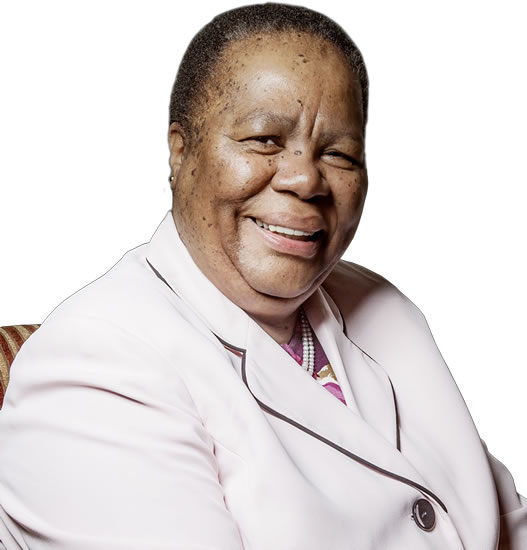 South Africa’s higher education landscape is changing, with tertiary education not only more accessible but also more aligned to meet industry needs. The changes are necessary as the country works towards preparing young people for the world of work and contributing to the economy.
South Africa’s higher education landscape is changing, with tertiary education not only more accessible but also more aligned to meet industry needs. The changes are necessary as the country works towards preparing young people for the world of work and contributing to the economy.
As the country commemorates Youth Month, Vuk’uzenzele takes a closer look at how the country’s youth are being provided with opportunities to succeed through the Department of Higher Education and Training.
Following a protracted nationwide protest under the banner #FeesMustFall, it was announced in December that youth from families whose income is less than R350 000 a year will receive free higher education and training. Implementation is under way and will be phased in over five years.
Bursary scheme
Higher Education and Training Minister Naledi Pandor confirmed that implementation of the bursary scheme is proceeding smoothly.
“The new bursary scheme is a very important intervention by the government of South Africa and, of course, the people of South Africa because it is their taxes that are paying for this,” she said.
The bursary scheme is offered to qualifying first-time entry university students and technical and vocational education and training (TVET) college students, in all years of study.
To fund the bursary scheme, additional government funding of R7.166 billion was allocated in 2018 – with R4.581 billion set aside for qualifying university students and R2.585 billion allocated to TVET college students.
Minister Pandor said colleges that specialise in specific fields of study could become centres of excellence synonymous with producing the best skill sets in its given field.
“I believe specialisation is the future of colleges.
“We want diversity. We don’t want all our colleges to do the same thing,” she said.
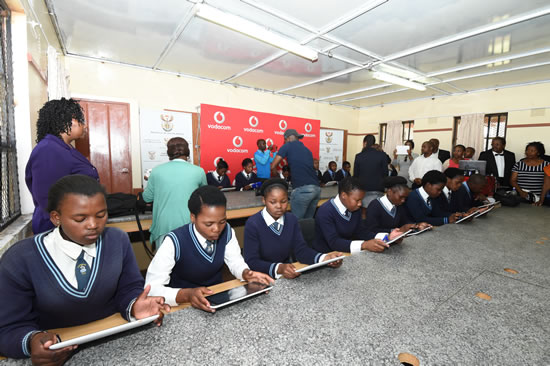 Meanwhile the Entrepreneurship Development in Higher Education programme was launched last year to encourage young people to start their own businesses.
Meanwhile the Entrepreneurship Development in Higher Education programme was launched last year to encourage young people to start their own businesses.
It is aimed at coordinating the development of an entrepreneurship platform within the university education sector in South Africa. This includes entrepreneurship in academia, development of student entrepreneurship as well as entrepreneurial universities.
Minister Pandor said that more needs to be done to not only help young people to be work-ready, but for them to be creators of decent work.
She would like to see institutions of higher learning offering entrepreneurship with all courses, a move that will see young graduates establishing start-ups that can reshape the future of the country.
Tugmaster is making waves
Tugmaster is making waves JoyAs a Transnet tugmaster Lindile Mdletshe (30) commands the powerful boats that are used to assist ship movements in the Port of Durban. While small in size, tugboats are extremely powerful and their handling takes much skill.
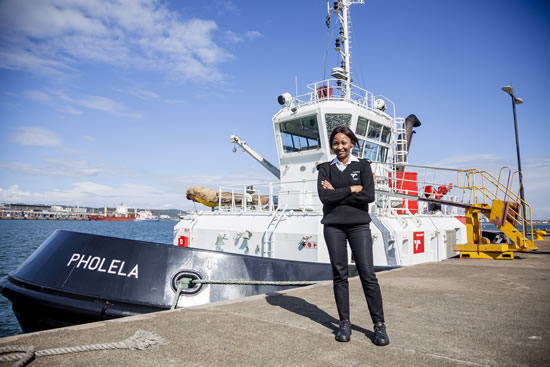 Mdletshe was born and bred in Port Shepstone and schooled at St Faiths.
Mdletshe was born and bred in Port Shepstone and schooled at St Faiths.
“It was quite an experience where I grew up. There was no fear, unlike these days, and everyone was raised by a village.”
Mdletshe completed matric in 2006, before heading off to the Durban University of Technology to study a National Diploma in Maritime Studies in 2007.
After completing her S1 in 2007 and her S2 in 2008 she commenced her three-year training at sea, with Safmarine Shipping Company. Here she learnt how to navigate a cargo ship in high seas and stopped at various ports in Europe, Africa and Asia for cargo operations and safety surveys.
She obtained her first degree at the age of 25, while completing her Port Operations Master’s degree at the same time. The latter certified her as a qualified tugmaster. “This was the biggest challenge because being a tugmaster does not require one to have a degree, only S1, S2 and training at sea. Only after this do people usually enrol to become a tugmaster. I did both at the same time. After work, I would go to school and catch up on the curriculum that was done that day,” she said.
Mdletshe loves being close to the ocean. “The water can tell you so much about what the day ahead will bring. Some days it’s calm, other days it’s rough and sometimes there are swells, so it’s a great dynamic world! Ships also have different shapes and carry different cargo, which means they have to be handled differently,” said Mdletshe, who enjoys working with multi-cultural crews, from various countries.
A challenging world
Being a woman in the maritime industry is “a challenging world” said Mdletshe, who sites gender-based issues as one of the biggest challenges as it is still largely considered a man’s world.
“As much as women try to blend in and work hard to prove people wrong, it can be draining. I overcame this by remaining calm, having a positive attitude and working with people to earn their respect. With a persistent and diligent effort, you can overcome these obstacles,” she said.
Mdletshe’s success at overcoming these obstacles is evident in the award she won as acting marine technical manager. “I received an award for being the best achiever in a short space of time because I passed an audit within the first week of acting in the position.” She also received the award of ‘being a hero’ in October 2017, for saving ships from the worst storm Durban had ever seen.
 “Being a tugmaster means that you sometimes have to put your big-girl pants on and be courageous,” she said.
“Being a tugmaster means that you sometimes have to put your big-girl pants on and be courageous,” she said.
Obtaining her Master’s degree made all the difference. “Getting my degree ensured more respect from my male colleagues. They ask me every day what I am busy with because there are only two of us who have gone this far and I was the first to complete the Maritime Diploma at the Port of Durban. This alone made me stand out,” she said, explaining that maritime studies is not an easy programme to study.
Role of a tugmaster
Mdletshe explains that a Tugmaster is in overall command of the craft and the people onboard.
She must ensure that the safety and fire equipment are in good condition and certified, conduct an annual safety survey of the craft, ensure the crew get proper training and sign their training books, conduct performance management reviews and help her employees to put together a development programme in line with their career path, enforce company policies and manage stores and place orders for equipment.
Mdletshe’s typical work day starts with a list of shipping movements, all of which have to be completed by the end of shift. “We start with shipping work at 06h00 and end at 17h50. Typically, two tugs work together, and each completes about eight jobs. Thereafter, we have to complete all of the paperwork. In emergency cases, we sometimes only finish work after 21h00,” she said.
Warriors of service delivery
Warriors of service delivery JoyTwo Service Warriors per ward can create 44 job opportunities and also improve service delivery.
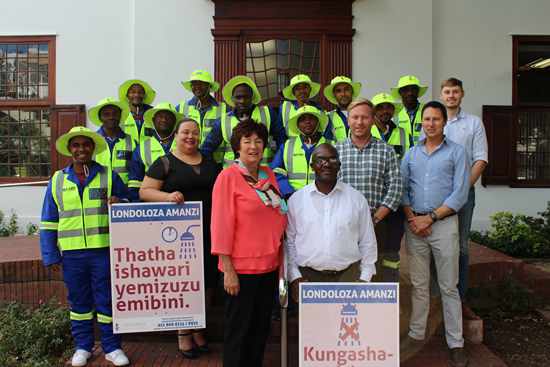 Service delivery problems in the Stellenbosch Local Municipality are being addressed through on-the-ground action by 11 previously unemployed Service Warriors.
Service delivery problems in the Stellenbosch Local Municipality are being addressed through on-the-ground action by 11 previously unemployed Service Warriors.
In light of the current drought, the municipality identified these community members to undergo plumbing training at the Bergzicht Training Centre to help prevent water losses and wastage.
The municipality realised that once the drought ends, their services would not be needed.
“We decided to expand the scope of the project. These 11 people are now true Service Warriors who identify a variety of problems in the wards, including blocked storm water drains, water leakages, illegal dumpsites and any other defects,” explained head of client services at the municipality’s Infrastructure Services Department Silvia Pretorius.
The Service Warriors work in four disadvantaged wards in the municipality – Kayamandi, Klapmuts, Dwarsrivier and Groendal. When they find issues they deliver feedback directly to municipal staff so that the problem can be responded to as quickly as possible.
“They send us lists of issues every day. Many residents do not have phones and don’t have the means to travel to our offices themselves to report their complaints. Now they have a better channel of communication with the municipality,” said Pretorius.
She said that the four-month pilot project has been successful so far and the hope is that it will be rolled out in all 22 municipal wards.
“With two Service Warriors per ward, we can create 44 job opportunities while also improving our service delivery efforts.”
The Service Warriors will soon be even better equipped to carry out their work. The municipality plans to give them tablets which will allow them to report issues, map locations and send photographs.
One of the Service Warriors Elton van Reenen, said that the work is not only helping him make a living but also making him feel like he is doing something useful for his community.
“It is nice to help with the problems that people have had for a long time now. We feel like we are making a difference. The work is rewarding, and it is good to be making some money too,” said Van Reenen.
At the launch of the project, Stellenbosch Mayor Gesie van Deventer said that the project is part of Stellenbosch’s greater goal of becoming one of the top municipalities in South Africa.
Water brings relief to Nongoma community
Water brings relief to Nongoma community JoyA R96-million project has resulted in more than 6 000 households receiving tap water and also created 200 jobs.
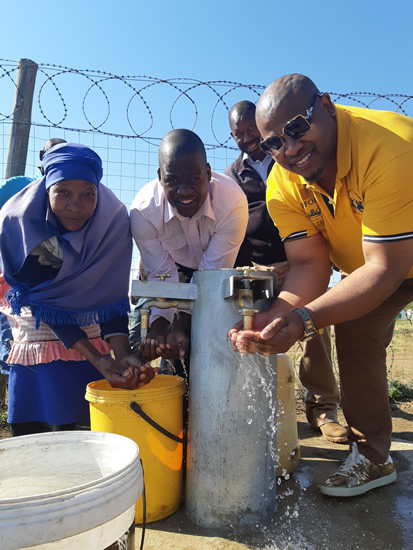 For the first time in her 27 years of life KwaNongomo resident Siphilile Gazu has received clean running water.
For the first time in her 27 years of life KwaNongomo resident Siphilile Gazu has received clean running water.
This was after a major project spearheaded by Mhlathuze Water on behalf of the Department of Water and Sanitation installed water supply infrastructure to communities living in the Nongoma and Abaqulusi Municipalities in the north of KwaZulu-Natal (KZN).
“Having a communal tap in my area is going to make things so much easier. In the past we used to walk to the nearest river to fetch water which was dirty,” said Gazu.
She added that ever since she was born her family always struggled for water. The ongoing project has already brought relief to thousands of households and created job opportunities.
Mhlathuze Water Interim CEO Mthokozisi Duze visited Nongoma to get a first-hand account on progress made on the project. He said it was part of the writing of a new chapter in the lives largely rural communities.
“We are extremely happy that finally people who had never had access to safe drinking water at the turn of a tap are finally able to do so. This project to supply water to the communities of Nongoma and Abaqulusi is ongoing...our goal is to ultimately see everyone effortlessly accessing this precious liquid.”
The R96-million project has resulted in more than 6 000 households receiving tap water and has helped create about 200 jobs during its implementation phase.
Another resident Anne Myeni chose to quote from scripture in reaction to news that for the first time in her 48 years as a resident of Nongoma she would be receiving clean drinking water from a tap.
“We feel like we have received manna from heaven…our problems are finally over,” said Myeni.
Myeni previously had to queue for the arrival of a water tanker or make early morning treks to the river to draw water before it became cloudy and muddy due to the cows that also shared the river with local people. The project offers a reprieve from a challenge that had become a distress in their lives.
Minister of Water and Sanitation Gugile Nkwinti announced in his 2017/18 Budget Vote that contracts have been signed and service providers are currently rendering services amounting to R7.5 billion, of which R6.3 billion is for infrastructure projects for the provision of water and sanitation around the country.
He also said R1.1 billion has been set aside for operational goods and services.
Young doctor a beacon of hope
Young doctor a beacon of hope LondekileFree-spirited yet practical and proactive sums up the young and successful Dr Nhlakanipho Gumede (34), who firmly believes in leading by example, values, professionalism, respect and innovation.
Born in Mbazwana in the north-eastern part of Kwazulu-Natal and raised by his grandmother, Gumede and his siblings came from a poor family but “never went hungry”
“We had a school, clinic and shops close to home, but we didn’t have electricity and had very little water until later in life when we had a tap in our yard. I grew up in a rural area where civilisation and life was evolving,” he recalled.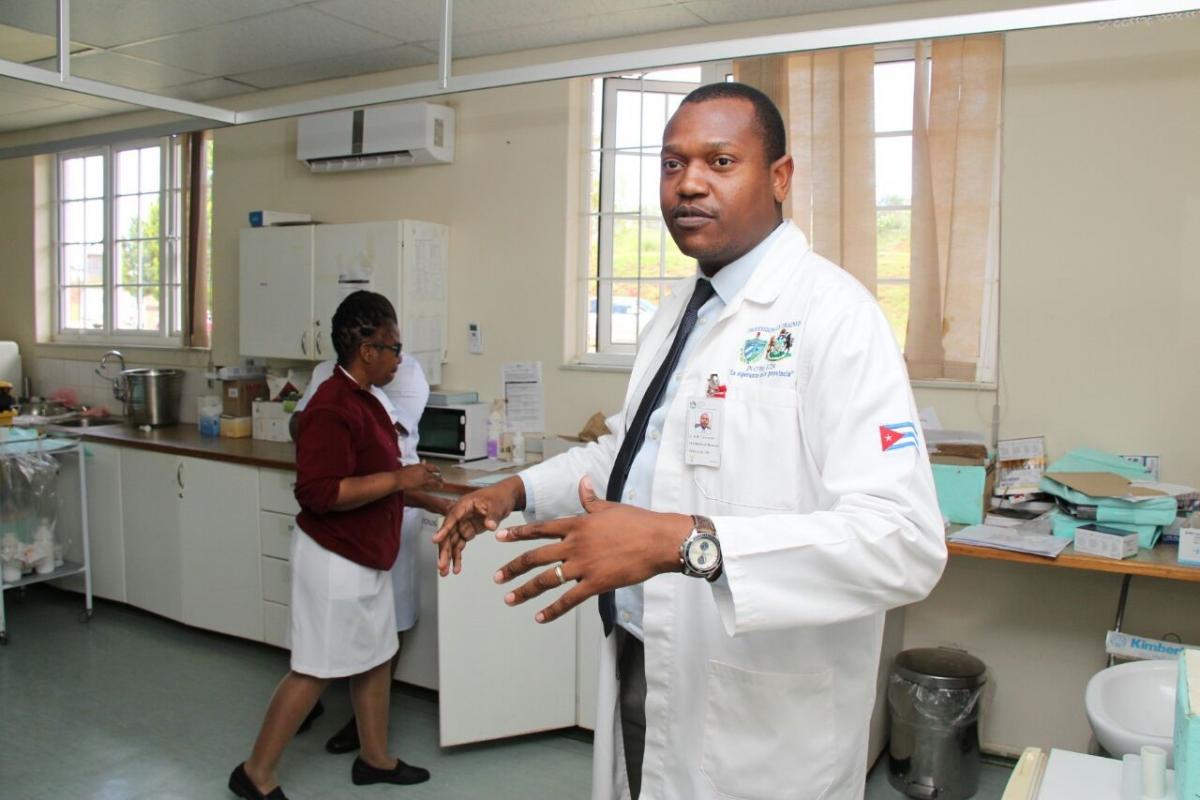
Gumede completed his Medical degree in Cuba in 2010 at the Instituto Superior de Ciencias Medicas de Villa Clara but his training required that he completes his final year in South Africa and he enrolled at Wits University. He then wrote his Cuban exams and obtained a Doctor en Medicina (Doctor in Medicine) degree which is equivalent to a MBBCh/ MBchB, at the age of 26.
The passionate healthcare professional “always had a thing for health” even though he didn’t believe that he would become a doctor one day.
“I remember asking why only white or Indian men worked in pharmacies and why black youth were not taking up these positions. When I was growing up people were dying from diseases.”
“I saw a lot of Malaria in my area and I always wanted to work at a health institution but I never wanted to become a doctor even though everyone at home always thought that I would become one,” he said.
Grabbing opportunities
One day Gumede saw an advert looking for students who wanted to study medicine in Cuba. He didn’t miss the opportunity.
“This was going to be the financial alleviation my family needed, especially my mother who was financing my tertiary education,” he added.
Gumede was just 31 when he took on the challenging and exciting role of acting CEO at Pholela Community Healthcare Centre in Bulwer, KwaZulu-Natal. A year later in 2016, he was appointed as CEO.
He has made fighting disease and poverty his mission, giving hope to others and solving any problems that arise at the healthcare centre.
“I enjoy taking good government policies and putting them into practice at grassroots level and the relationships that I have with patients and employees. What is most fulfilling though, is to see my team being actively involved in the development of strategies that guarantee that our people and society receive the healthcare services that they deserve.”
“To be the one that pushes this agenda makes me happy about my job. After all, prevention is better than cure,” said Gumede.
Teenage pregnancy and HIV
Pholela’s greatest challenges include the high incidence of HIV and teenage pregnancy.
“It is medically proven that teenage pregnancy is a risk factor of HIV. We are worried about the high number of teenagers who fall pregnant.
The fact that they are pregnant means that they did not use protection therefore they are at risk of sexually transmitted infections such as HIV,” said Gumede.
Pholela is working on a strategy that includes teenage pregnancy campaigns in schools and educating the community to stop this epidemic.
“We are also planning a huge event in June 2018 that will involve Operation Sukuma Sakhe, traditional leaders, municipalities and all government departments. It will help us to educate more teenagers and ensure that the message is spread not only to them also, but to the community at large,” he added.
Gumede has his sights firmly set on obtaining a Business Administration degree majoring in health. From there he wants to obtain his Masters in Public Health and a PHD.
Gumede’s message to youngsters this Youth Day is clear. “It’s all in our hands. The 1976 generation laid the foundation and the 1994 elections gave us freedom to start taking control of our country. The government cannot give you everything on a platter. Some things you must work hard for. Don't wait for government to give you anything. Wake up and fend for yourself. There is a great world out there waiting for you,” he said.
Young vets saving animals' lives
Young vets saving animals' lives LondekileLike humans and all other living beings, animals also have a need when it comes to their healthcare needs.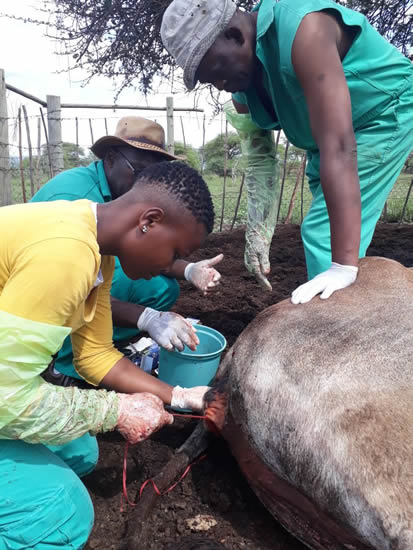
This is why the North West Department of Rural, Environment and Agricultural Development is increasing efforts to strengthen veterinary services in the province.
The department has already placed veterinarians in rural areas on the province as part of their one-year compulsory community service to ensure that all threats to animal health and food safety are detected and dealt with as early as possible.
The department said the objectives of the Veterinary Compulsory Community Services programme (CCS) is to provide accessible and affordable veterinary services to under-served and poor-resourced areas in the country.
The newly-deployed veterinarians have been sent to veterinary offices in local municipalities including Kagisano, Taung, Ramotshere Moiloa Madibeng, and areas around Potchefstroom centres.
Dr Mukani Nobela who is one of the Veterinarians told Vuk’uzenzele about the importance of keeping animals healthy.
“Animals are living, breathing beings just like human beings. They feel pain and get sick but most importantly, some protect us and others feed us, so we need to take care of them,” the 27-year-old said.
Nobela works in a veterinary office in the Madibeng Local Municipality but from time to time is called to go provide her specialised services in different households across Madibeng.
Part of her daily job is to vaccinate dogs and cats and treat livestock for different diseases including Transmissible Venereal Tumor.
The University of Pretoria graduate said she chose her career path because while she was growing up in Giyani, Limpopo, she did not see anyone taking care of animal health in her community.
She sees working in the North West as an opportunity to motivate community members to care for their animals, as it is a rural province, and also hopes to inspire black females in the area to follow in her footsteps.
“The North West was my first option mainly because there is a lot of animal production taking place here and it is close to my home province,” Nobela said.
She also hopes to increase her skills and knowledge with regard to field work for domestic or companion animals and those used in agriculture.
The department said CCS veterinarians are expected to make use of the already existing communication channels with the community in order to establish mobile community veterinary clinics.